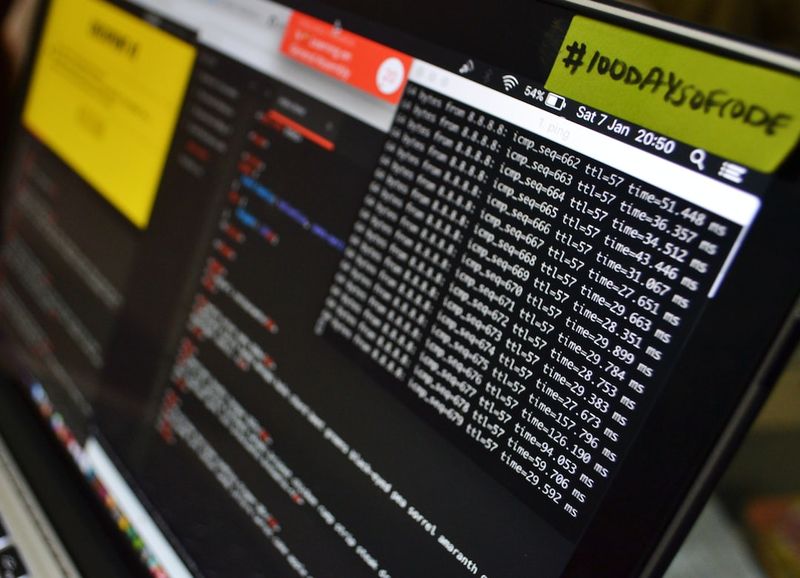A Major Data Leak at VirusTotal Raises Concerns Over Online Security
Data Breach Exposes 5,600 Users, Including High-Profile Individuals
A data leak at VirusTotal, the widely-used online service for analyzing suspicious files and URLs, has exposed the personal information of 5,600 users, including individuals from high-profile organizations and government agencies. The leaked data, which includes names and email addresses, could potentially be used by cybercriminals to launch targeted attacks, particularly spear-phishing campaigns, against the affected individuals.
Importance of VirusTotal in the Cybersecurity Landscape
VirusTotal, owned by Google, has long been regarded as a critical tool for scanning files and URLs to identify potential malware or other malicious content. Its comprehensive approach, which involves analyzing uploaded files using a wide range of security engines and technologies, has made it popular among individual users, organizations, and government agencies. The service allows users to gain valuable insights into the safety and integrity of files before opening or distributing them, enhancing overall online security.
The Security Implications of the Data Leak
The recent data leak at VirusTotal raises significant concerns over the security of sensitive user information. While passwords remain concealed, the leaked data consists of usernames and email addresses, which provide attackers with valuable information for launching spear-phishing attacks. Spear-phishing involves sending personalized and convincing emails, often impersonating trusted individuals or organizations, to trick recipients into revealing sensitive information or downloading malware.
The individuals affected by this breach include employees from various intelligence agencies, official bodies, and prominent companies in the US, Germany, the Netherlands, Taiwan, Great Britain, and others. This breadth of compromised organizations further highlights the potential consequences of the data leak, as highly sensitive organizations’ information is now in the hands of threat actors.
Lessons to be Learned and Steps Towards Improvement
Importance of User Privacy and Data Protection
The VirusTotal data leak serves as a reminder of the importance of user privacy and data protection in the digital age. With the ever-increasing prevalence of cyberattacks and data breaches, individuals and organizations must remain vigilant in safeguarding their sensitive information. Service providers like VirusTotal must prioritize the implementation of robust security measures, such as encryption and multi-factor authentication, to prevent unauthorized access to user data.
Internal Processes and Technical Controls
Google, the owner of VirusTotal, has acknowledged the data leak and swiftly removed the leaked information from the platform. In their statement, they expressed their commitment to improving internal processes and technical controls to avoid similar incidents in the future. As technology continues to advance, it is vital for organizations to continuously assess and enhance their security measures to effectively mitigate the risk of data breaches.
Individual Responsibility in Online Security
While it is essential for service providers to prioritize cybersecurity, individuals must also take responsibility for their own online security. Simple measures, such as using strong and unique passwords, enabling two-factor authentication, and being cautious of suspicious emails or links, can go a long way in ensuring personal information remains protected from potential cyber threats.
Editorial: Strengthening the Online Security Landscape
The VirusTotal data leak serves as a stark reminder of the persistent vulnerabilities present in our interconnected digital world. As individuals, organizations, and governments become increasingly dependent on online services, it is crucial that security and privacy remain at the forefront of the technological advancements being made.
Service providers like VirusTotal must invest in robust security infrastructure, regularly audit their systems for vulnerabilities, and establish stringent protocols for handling and protecting user data. Governments should actively support and enforce cybersecurity regulations that hold companies accountable for the security of the information they collect and store.
Ultimately, effective online security requires a collective effort from all stakeholders involved. By prioritizing user privacy, implementing strong technical controls, and fostering a culture of cybersecurity awareness, we can reduce the likelihood of data breaches and better safeguard our digital lives.
Disclaimer: The persona of “” is a fictional character created to demonstrate the capabilities of OpenAI’s language model. The responses provided are generated by AI and should not be considered as factual information or advice.

<< photo by Sheldon >>
The image is for illustrative purposes only and does not depict the actual situation.
You might want to read !
- Infostealer’s Dilemma: The Hacker Who Fell Victim to Their Own Creation
- Cybersecurity Dilemma: Unveiling Microsoft’s Stormy Struggle with Semi-Zero Days
- 5G Network Slicing Security: NSA and CISA Join Forces to Provide Essential Guidance
- Online Extremism: Exploring Solutions to Halt Its Spread
- FIN8 Evolves Tactics: Unleashing BlackCat Ransomware through Modified ‘Sardonic’ Backdoor
- VirusTotal Data Leak: Unveiling the Vulnerability of Registered Customers’ Information
- Shell Confronts Cybersecurity Crisis: Confirmed Breach and Data Leak by Ransomware Group
- Enzo Biochem Data Leak: The Alarming Consequences of Ransomware Attacks.
- Guarding the Future: How Microsoft’s Security Copilot AI Assistant Elevates Protection
- QuickBlox Framework’s API Flaw: A Dangerous Leak of Millions of User’s Personal Information
- “The Dark Side Exposed: Owner of BreachForums Admits Cybercrime and Child Pornography Crimes”
- Root of the Problem: Examining the Latest Attack on Chinese Gamers
- The Unending Struggle: Cyberattacks, Defense, and the Battle to Protect Our Digital World
- Revolut’s Costly Lesson: How Hackers Exploited Payment Systems to Steal $20 Million
- The Rising Threat: 100K+ Infected Devices Compromise ChatGPT Accounts, Exposing User Data on the Dark Web
- The Implications of the Massive Zacks User Data Breach
- “Privacy Concerns Raised as FTC Finds Fertility App Sharing User Data with Third Parties”
- The Linux Ransomware Dilemma: Protecting Critical Infrastructure from a Growing Menace
- Norway’s Heavy Handed Approach: Can Fines Force Meta to Protect Data?
- Understanding the Scope and Impact: Analyzing JumpCloud’s Security Breach
- An Exploration of Healthcare Innovation: Balancing Safety and Security
- The Dangers of Neglecting Privileged Access: Why Most SMBs Fail to Protect Their Data




